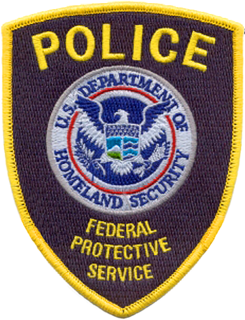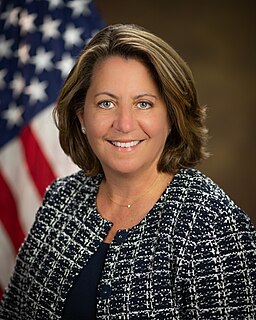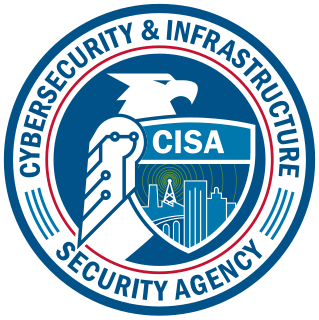The United States Armed Forces are the military forces of the United States. The armed forces consists of six service branches: the Army, Marine Corps, Navy, Air Force, Space Force, and Coast Guard. The president of the United States is the commander-in-chief of the armed forces and forms military policy with the Department of Defense (DoD) and Department of Homeland Security (DHS), both federal executive departments, acting as the principal organs by which military policy is carried out. All six armed services are among the eight uniformed services of the United States.

The United States Coast Guard (USCG) is the maritime security, search and rescue, and law enforcement service branch of the United States Armed Forces and one of the country's eight uniformed services. The service is a maritime, military, multi-mission service unique among the United States military branches for having a maritime law enforcement mission with jurisdiction in both domestic and international waters and a federal regulatory agency mission as part of its duties. It is the largest and most powerful coast guard in the world, rivaling the capabilities and size of most navies.
Homeland security is an American national security term for "the national effort to ensure a homeland that is safe, secure, and resilient against terrorism and other hazards where American interests, aspirations, and ways of life can thrive" to the "national effort to prevent terrorist attacks within the United States, reduce the vulnerability of the U.S. to terrorism, and minimize the damage from attacks that do occur." According to an official work published by the Congressional Research Service in 2013, the "Homeland security" term's definition has varied over time.

The United States Department of Homeland Security (DHS) is the U.S. federal executive department responsible for public security, roughly comparable to the interior or home ministries of other countries. Its stated missions involve anti-terrorism, border security, immigration and customs, cyber security, and disaster prevention and management.
The Visa Waiver Program (VWP) is a program of the United States federal government that allows nationals of specific countries to travel to the U.S. for tourism, business, or while in transit for up to 90 days without having to obtain a visa. It applies to all fifty U.S. states, the District of Columbia, Puerto Rico, and the U.S. Virgin Islands, as well as to Guam and the Northern Mariana Islands, which also have an additional program with waivers for more nationalities; American Samoa has a similar but separate program.

A Marksmanship Ribbon device is primarily a miniature metal rifle, pistol, target, service star, or letter E or S which may be worn if authorized on a Marksmanship Ribbon awarded to members of the United States Coast Guard, United States Air Force, and United States Navy.

The Federal Protective Service (FPS) is the Uniformed Police Division of the United States Department of Homeland Security (DHS). FPS is "the federal agency charged with protecting and delivering integrated law enforcement and security services to facilities owned or leased by the General Services Administration (GSA)"—over 9,000 buildings—and their occupants.

The Real ID Act of 2005 is an Act of Congress that modifies U.S. federal law pertaining to security, authentication, and issuance procedure standards for drivers' licenses and identity documents, as well as various immigration issues pertaining to terrorism.
U.S. Citizenship and Immigration Services (USCIS) is an agency of the United States Department of Homeland Security (DHS) that administers the country's naturalization and immigration system. It is a successor to the Immigration and Naturalization Service (INS), which was dissolved by the Homeland Security Act of 2002 and replaced by three components within the DHS: USCIS, Immigration and Customs Enforcement (ICE), and Customs and Border Protection (CBP).

The visa policy of the United States consists of the requirements for foreign nationals to travel to, enter, and remain in the United States. Visitors to the United States must obtain a visa from one of the U.S. diplomatic missions unless they come from one of the visa-exempt or Visa Waiver Program countries. The same rules apply for travel to all U.S. states, Washington, D.C., Puerto Rico and the U.S. Virgin Islands, as well as to Guam and the Northern Mariana Islands with additional waivers, while similar but separate rules apply to American Samoa.

A B visa is one of a category of non-immigrant visas issued by the United States government to foreign nationals seeking entry for a temporary period. The two types of B visa are the B-1 visa, issued to those seeking entry for business purposes, and the B-2 visa, issued to those seeking entry for tourism or other non-business purposes. In practice, the two visa categories are usually combined and issued as a "B-1/B-2 visa" valid for a temporary visit for either business or pleasure, or a combination of the two. Nationals of certain countries do not usually need to obtain a visa for these purposes.

Jeh Charles Johnson is an American lawyer and former government official. He was United States Secretary of Homeland Security from 2013 to 2017.
Temporary Protected Status (TPS) is a temporary status given by the United States government to eligible nationals of designated countries, as determined by the Secretary of Homeland Security, who are present in the United States. In general, the Secretary of Homeland Security may grant Temporary Protected Status to people already present in the United States who are nationals of a country experiencing ongoing armed conflict, an environmental disaster, or any temporary or extraordinary conditions that would prevent the foreign national from returning safely and assimilating into their duty. Temporary Protected Status allows beneficiaries to live and, in some cases, work in the United States for a limited amount of time. As of March 2022, there are about 400,000 foreign nationals in Temporary Protected Status.

Lisa Oudens Monaco is an American attorney, former federal prosecutor and national security official who has served as the 39th deputy attorney general of the United States since April 2021.

Executive Order 13769, titled Protecting the Nation from Foreign Terrorist Entry into the United States, labeled the "Muslim ban" by critics, or commonly referred to as the Trump travel ban, was a controversial executive order by US President Donald Trump. Except for the extent to which it was blocked by various courts, it was in effect from January 27, 2017, until March 6, 2017, when it was superseded by Executive Order 13780. Executive Order 13769 lowered the number of refugees to be admitted into the United States in 2017 to 50,000, suspended the U.S. Refugee Admissions Program (USRAP) for 120 days, suspended the entry of Syrian refugees indefinitely, directed some cabinet secretaries to suspend entry of those whose countries do not meet adjudication standards under U.S. immigration law for 90 days, and included exceptions on a case-by-case basis. The Department of Homeland Security (DHS) listed these countries as Iran, Iraq, Libya, Somalia, Sudan, Syria, and Yemen. More than 700 travelers were detained, and up to 60,000 visas were "provisionally revoked".

Executive Order 13767, titled Border Security and Immigration Enforcement Improvements, was issued by United States President Donald Trump on January 25, 2017. The order directs a wall, colloquially called the "Trump wall", to be built along the Mexico–United States border. On December 22, 2018, the federal government went into a shutdown due to Trump's demand for $5.6 billion in federal funds to begin work on the wall. By January 12, 2019, the shutdown became the longest budget shutdown in U.S. history.

Kirstjen Michele Nielsen is an American politician and attorney who served as United States Secretary of Homeland Security from 2017 to 2019. She is a former principal White House deputy chief of staff to President Donald Trump, and was chief of staff to John F. Kelly during his tenure as Secretary of Homeland Security.

The Cybersecurity and Infrastructure Security Agency (CISA) is a United States federal agency, an operational component under Department of Homeland Security (DHS) oversight. Its activities are a continuation of the National Protection and Programs Directorate (NPPD). CISA was established on November 16, 2018 when President Donald Trump signed into law the Cybersecurity and Infrastructure Security Agency Act of 2018. Brandon Wales served as Acting Director until Jen Easterly was unanimously confirmed by the Senate on July 12, 2021 and became Director.












